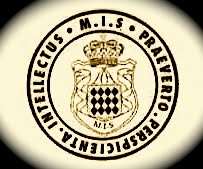
It was in a bar—inside Hotel Columbus, owned by race-driver David Coulthard, in Monaco’s Fontvieille quarter—that Prince Albert retained Robert Eringer to be his spymaster. They sat in a booth by the window, his two bodyguards hovering nearby. It was June 16th, 2002, a Sunday, about seven in the evening. The Prince sipped cranberry juice, Eringer a Kronenbourg beer.
Nobody—from Monaco, nor France, which is pledged to protect the tiny principality—had been briefing His Serene Highness on the political situations of countries he visited or heads of state with whom he regularly interacted. Moreover, suspicious persons constantly attempted to penetrate the Prince’s social orbit, and he desired to know more about such individuals and the entities they claimed to represent. Furthermore, the Prince expressed concern that elements of Russian organized crime were worming their way into his domain.
At that meeting Eringer warned the Prince that he would, in time, grow weary of seeing him; that he would become, by necessity, the bearer of bad news, including unwelcome information about his closest associates. Eringer warned that as his visibility increased others would seek to discredit him—and would urge him to shoot the messenger, a theme recurrent in history.
The Prince determined that Eringer should operate outside the principality’s government structures and report only to him. As such, they conceived an old-fashioned spy service that would function, as intelligence agencies truly should, without official existence. Eringer would be based outside of Monaco and, as much as possible, remain invisible, stealing in and out of the principality for their covert meetings.
As an outsider, Eringer was not aligned with any of the political and commercial factions that wage war within the principality and thus not entangled with conflicts or special interests. He could therefore look upon Monaco as a doctor studies cancer cells, with emotionless objectivity.